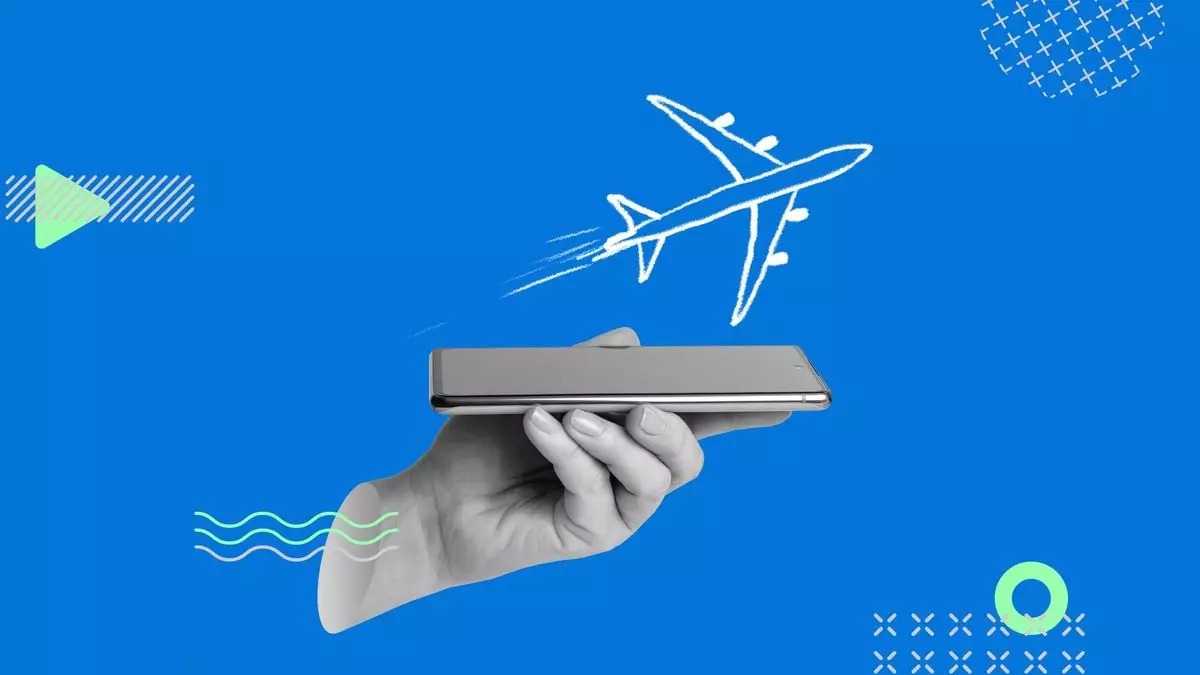In an industry historically rooted in legacy systems, United Airlines has recently turned heads with its latest upgrade to the New Distribution Capability (NDC). This game-changing innovation signifies a pivotal transformation, particularly highlighted by Jeff Klee, CEO of AmTrav, who referred to it as “Tie-Goes-to-NDC Day.” It’s crucial to analyze the implications of this shift for travel advisors and corporate clients alike, as it opens doors to enhanced booking processes yet leaves significant gaps that require attention.
NDC is not just a buzzword; it represents a departure from the traditional methods used to sell airline tickets, enhancing the entire travel experience. Version 10.9 of United’s NDC, launched in February, offers exciting new features that have the potential to reshape the way travel management companies (TMCs) operate. Klee suggests that the defining moment for this upgrade is when both NDC-enabled and traditional tickets are priced the same, allowing TMCs to choose NDC for its inherent benefits rather than solely price incentives. This is a monumental step forward, as the conversation surrounding flight bookings transitions from cost to value-added features—something that could invigorate a rather stagnant sector.
A Closer Look at Major Upgrades
Core among the enhancements in United’s NDC are features that align closely with the expectations of TMCs. One significant update allows travel agencies to exchange tickets purchased through legacy systems for NDC tickets. This seamless transition process caters to the modern traveler’s needs, enabling flexibility and convenience that were previously unavailable.
Moreover, another integral update allows for the application of unused ticket credits at the end of the booking process. This advancement addresses one of the frustrating limitations of older systems, fostering a smoother and more user-friendly workflow for travel advisors. Klee emphasized that factoring in unused credits at the beginning of the booking phase is often not feasible, as decisions around credits are usually made post-flight search. This responsiveness to industry pain points is what makes United’s recent upgrades stand out.
Additionally, the requirement for immediate ticketing within 26 hours of a flight has been lifted, providing much-needed breathing room for corporate clients to review bookings prior to finalization. While these upgrades signify a leap toward modernization, they don’t come without caveats. Klee identified certain servicing gaps, such as the inability to enforce pricing exceptions when airlines grant leniency on ticketing rules, suggesting that while United’s efforts are commendable, further refinement is necessary.
Balancing Strengths and Weaknesses
As wonderful as these new NDC capabilities sound, it is essential to recognize that not every player in the travel distribution landscape will benefit equally. For travel agencies reliant on Global Distribution Systems (GDS), the advancements in United’s NDC may still feel somewhat elusive. Compounding this, the integration of ancillary products—crucial to modern travel management—remains a struggle for GDS users, who might find that many of the exciting features are simply not available through these traditional channels.
Peter Vlitas, from Internova Travel Group, captures this sentiment well, suggesting that while direct connections to NDC applications provide advantageous opportunities for some, the majority of travel providers still face a “slow, uphill grind” when navigating these enhanced functionalities. This disparity raises questions about fairness and accessibility within the travel agency sector.
Amidst these challenges, United has made strides in deliverables. According to Glenn Hollister, the airline’s vice president of sales and effectiveness, nearly 50% of United tickets sold now incorporate continuously priced fares not available through existing GDS platforms. This is especially significant when considering the shift toward ancillary revenue streams, which GDS options still struggle to support.
The Future for Travel Advisors
Ultimately, while United’s latest NDC version enhances the experience for many, travel advisors will need to brace for the complexities that accompany these changes. The improvements are undoubtedly praiseworthy—enabling flexible ticket exchanges and timely processing—but they come with a demand for adaptability from both advisors and technology providers. As Klee notes, certain bugs still plague United’s NDC, indicating that it remains a work in progress. Yet, these functionalities present a level of care that GDS setups often overlook, especially in terms of handling travel disruption.
The journey toward a fully integrated and efficient NDC system is only beginning. Travel advisors are urged to keep their fingers on the pulse of these developments to leverage the new opportunities as they arise. Embracing these changes, understanding the advantages, and adapting to the associated challenges will be essential for TMCs seeking to thrive in this new era of travel management.


Leave a Reply